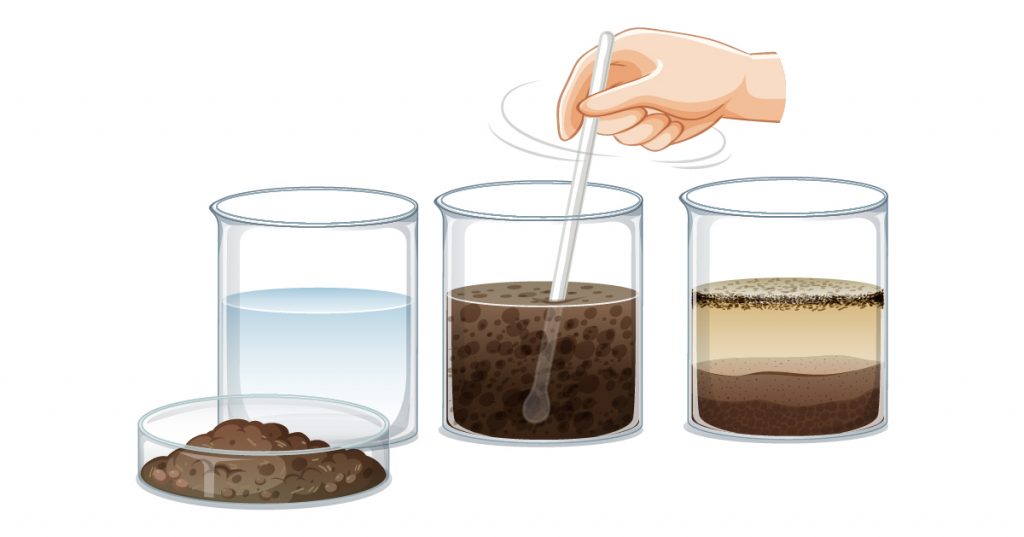The provision of safe drinking water is essential to public health and sustainable development. In Malaysia, there has been significant progress to enhance water supply; however, one issue consistently impacting the quality of water is dissolved solids. These are constituents of water, including minerals, salts, metals, and organic material, that collectively make up total dissolved solids (TDS).
While some dissolved solids are naturally occurring and harmless, elevated levels can lead to potential threats to the safety of water, taste, and chronic health. Recognizing the total dissolved solids risks within drinking water and identifying solutions to mitigate risks using current advancements in water treatment will help to ensure safe, accessible, and reliable drinking water across the country.
What Are Dissolved Solids and Why Do They Matter?
Dissolved solids in water consist of calcium, magnesium, sodium, chlorides, sulfates, and some heavy metals. Dissolved solids enter water supplies through natural processes like rock erosion or through human actions such as industrial waste, agricultural runoff, and urban discharges.
The problem occurs when the total dissolved solids in water exceed a recommended limit. The presence of some total dissolved solids is a concern not just for water quality, but also for human health.
The following effects of high TDS may be experienced:
- Bad taste or odor – High TDS causes the water to have a salty, metallic, or bitter taste.
- Health issues – Certain dissolved solids in high concentrations may cause stress to the kidneys, gastrointestinal problems, or chronic long-term ailments.
- Scaling and corrosion – For homes and industry, high TDS can cause damage to appliances, plumbing, and water distribution systems.
- Environmental harm – Excess dissolved solids in rivers and lakes can be detrimental to aquatic plants and animals, and to the ecosystem.
The Challenge in Malaysia
Several areas in Malaysia are experiencing rising TDS levels as a result of rapid industrialization, mining, and agriculture. Groundwater sources are especially vulnerable, with dissolved solids present sometimes exceeding acceptable levels for drinking water. Hence, for communities reliant on these sources, the question becomes pressing— how could dissolved solids be monitored or alleviated to ensure safe drinking water for residents?
Ion Exchange’s Advanced Solutions for TDS Management
Ion Exchange is a global leader in water treatment technologies, offering innovative solutions to monitor and optimize water TDS levels for residential, commercial, and industrial applications.
Ion Exchange specializes in the production of high-purity ion exchange resins specifically designed for purifying potable water. These resins are engineered to have minimal organic leachables, ensuring superior water quality and safety. The versatile applications of these resins include water softening, disinfection, and the removal of contaminants such as nitrate, arsenic, fluoride, iron, and color-causing organic compounds. With a diverse product range that also includes specialty resins, Ion Exchange offers tailored solutions for addressing various water treatment challenges effectively.
With decades of expertise, Ion Exchange helps customers achieve a balanced drinking water TDS level, delivering clean, healthy, and high-quality water.
Why Partner with Ion Exchange?
Ion Exchange’s Indromatic series is engineered to deliver superior TDS removal, ensuring consistently high-quality water for diverse industrial and institutional needs. At Gland Pharma Ltd., Hyderabad, the Indromatic 802 (2000 LPH) provides up to 95% TDS reduction, managing fluctuations with ease while offering automated alerts and proactive maintenance.
Similarly, the Indromatic 405 (1000 LPH) supplied to the International Academy of Environmental Health, Bengaluru, combines robust design with advanced automation. With GSM-based monitoring, safety features, and the ability to treat water with TDS levels up to 2500 ppm, it guarantees operational reliability and efficiency.
From pharmaceuticals to public health institutions, Ion Exchange continues to set benchmarks in TDS control and water purification, offering compact, durable, and service-friendly systems tailored to critical applications.
Conclusion
High concentration of dissolved solids in water affects not only taste but also human health, safety, and sustainability. Through advanced technologies and by tackling total dissolved solids in water, Malaysia can deliver potable water that is safe and reliable to its growing population. Ion Exchange is taking a lead role by developing innovative, sustainable, and future-ready water treatment solutions.


